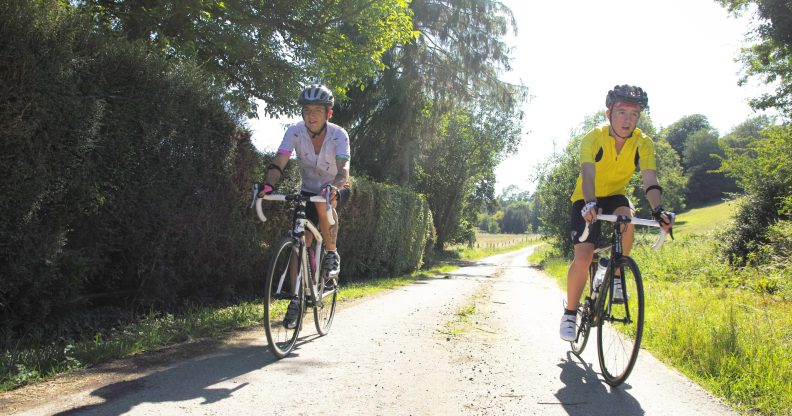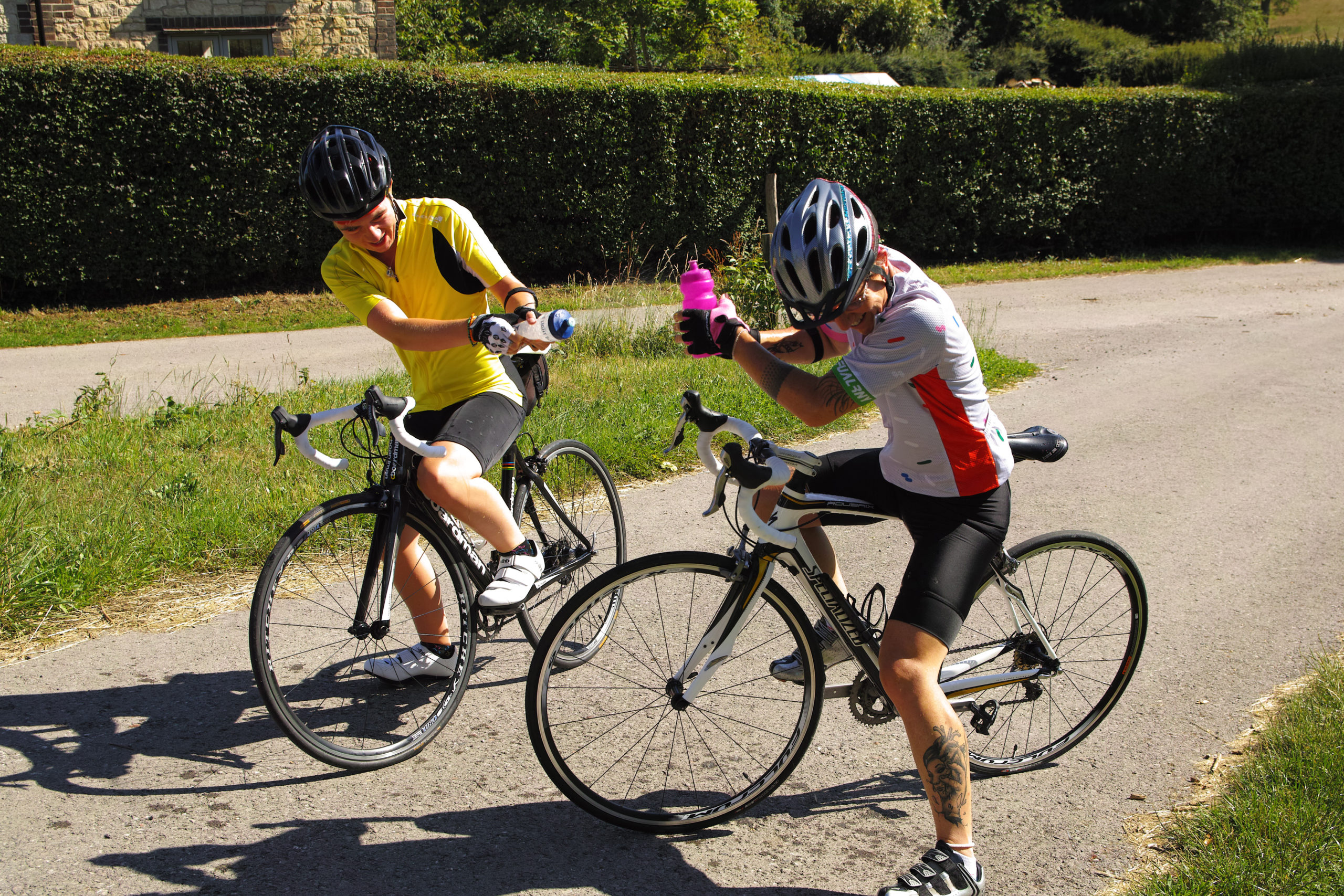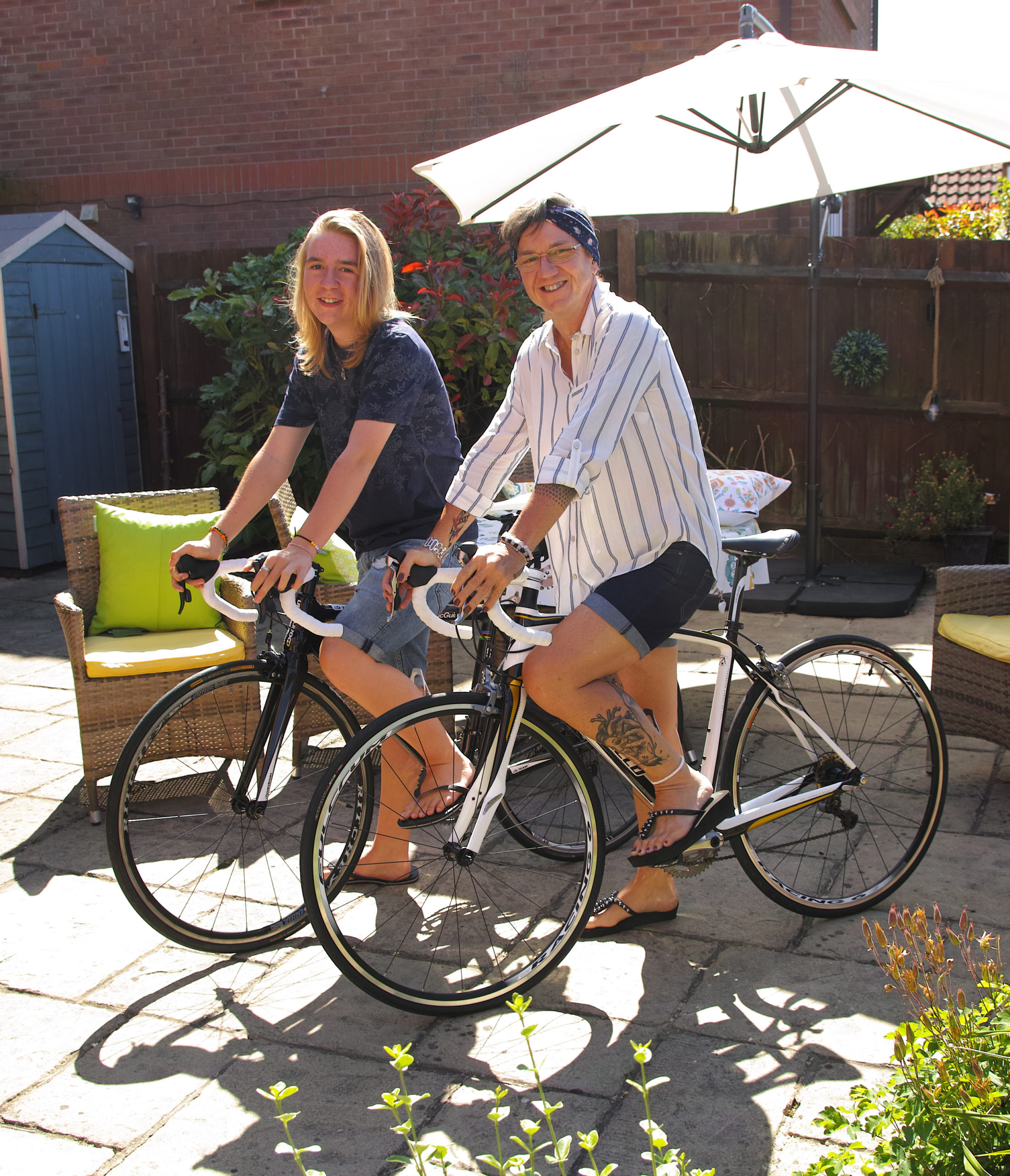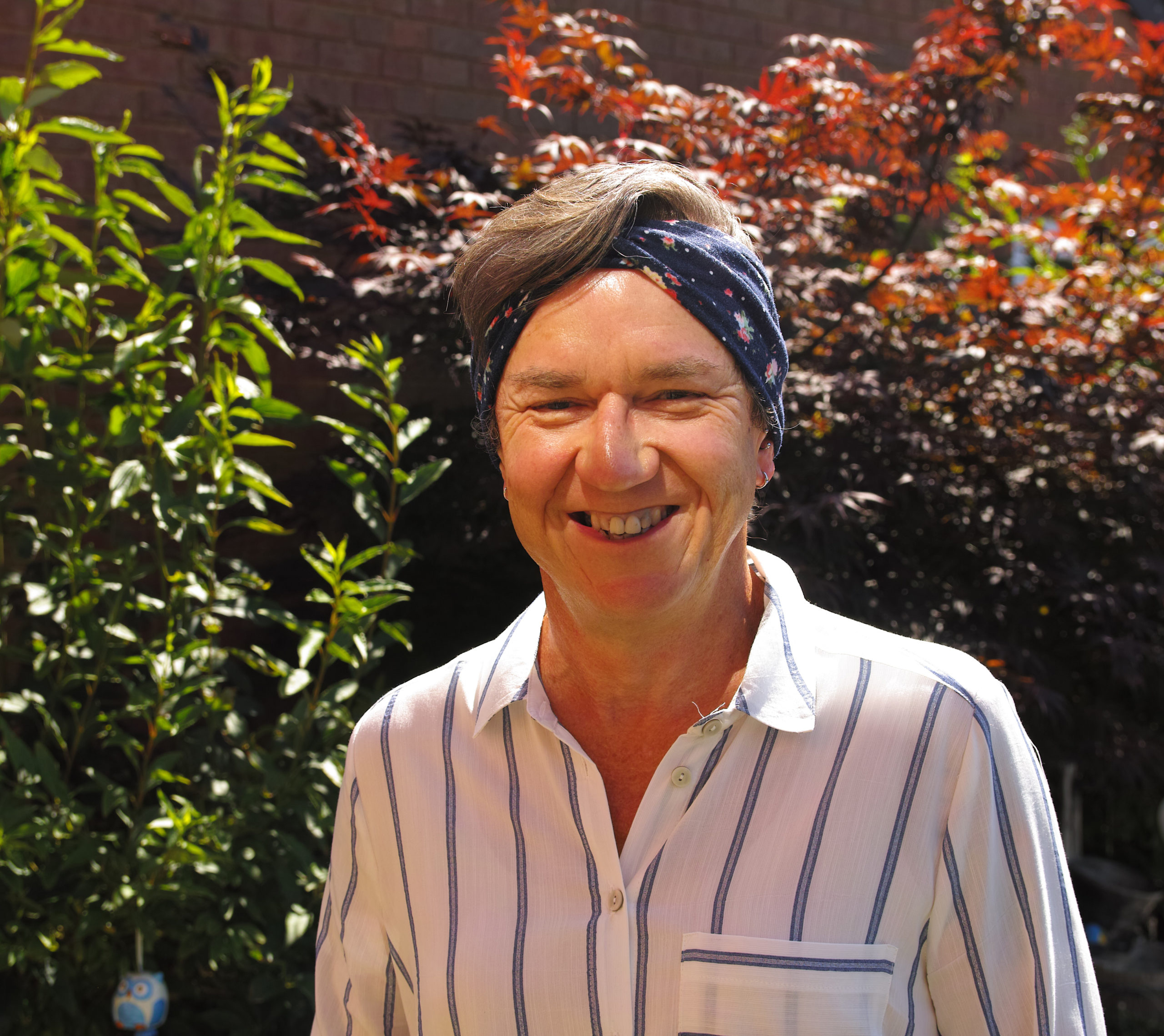First-ever Tour de Trans sees cyclists take on 1,000 mile challenge to help empower transgender people everywhere

Pateon (left) and their son Callum. (Supplied)
A thousand miles lie between the start of the UK’s first-ever Tour de Trans and the finish line.
Following one of the most iconic cycle routes in Britain, from Land’s End in Cornwall to John O’Groats in Scotland, the Tour de Trans will ride the entire length of the UK, from the southernmost to the northernmost tip.
The challenging route, known as LEJOG, is attempted by thousands of people each year. The latest people to set off from Land’s End are a non-binary person, Pateon McGuire, and their 17-year-old son, Callum.
Billing their ride as the Tour de Trans, the duo are fundraising for trans-support charity Chrysalis and want to use the trip to raise awareness about the issues transgender people face, as well as promoting inclusivity in sport.
The #TourDeTrans has officially started?our #cyclists have left Lands' End on their journey #AcrossBritainAcrossGenders ?
Join us and raise awareness of trans issues, and start positive conversations about gender identity
ride?or wave a flag?️⚧️
take a pic?
tag #TourDeTrans pic.twitter.com/zq7zTq5RdV
— TourDeTrans (@TourDeTrans) August 13, 2020
Two days before they set off on the Tour de Trans, Pateon told PinkNews that the trip is not only about raising awareness – it’s also a culmination of their own personal gender journey.
“This is all also a part of my own journey of being transgender – I only started my transition in March of this year,” they told PinkNews.
Though they’ve “struggled with gender dysphoria and gender incongruence” their whole life, it wasn’t until a period of deep introspection in February this year that they “realised that there was a huge part of me that was locked away and it needed to be brought out”.
They used to be a keen cyclist, qualifying as a British Cycling coach in 2012 and spending a few years coaching, but then in 2014, as their marriage broke down, they stopped.
Pateon hadn’t been on a bike again, until they put one on an indoor trainer during lockdown to get some exercise.
“With cycling having been such a big part of my previous life,” they say, “I needed to understand whether that was part of who I am or whether it was part of the person I’ve been trying to be.
“So when I started cycling again, it was an emotional journey for me as well to understand that cycling is actually really very much a part of the person that I am. It’s a part of the real integrated me.”
This is why Pateon decided to cycle LEJOG: “I wanted to do something that physically symbolised and externalised my transitional journey towards completion and wholeness.”
And while they had considered doing the route before, it was when something “clicked into place” during one of the lockdown days spent pedalling on the indoor bike that they realised they would now actually do it. Their son, Callum, immediately agreed to do it with them.
The pair have been training hard. They’ll be cycling an average of 80 miles a day, and camping each night in the “support vehicle”, the family campervan, being driven alongside them by Pateon’s partner, M.

Pateon and Callum taking a break during a training ride. (Supplied)
Tour de Trans raising money for Chrysalis.
The Tour de Trans is raising money for Chrysalis, the charity that has been supporting Pateon through their transition.
“There is only one, full-time paid staff member at Chrysalis,” Pateon explains. “At any one given time, Chrysalis is providing support to around 120 transgender individuals.”
The support they received from Chrysalis has been absolutely vital to their journey of self-acceptance, Pateon adds.
“The objective is to enable people that are going through this process, whether it’s questioning their gender identity or going through full transition, to be able to come out the other end of it as happy, productive members of society,” Pateon emphasises, “as opposed to broken individuals with a lot of damage around them, like broken family relationships and lost career opportunities or jobs.”
They continue: “There is a reason why transgender individuals are one of the highest suicide risk groups in the medical field.
“It’s because it is characterised by extreme isolation. It is very confusing. It is a time of extreme anxiety.
“Chrysalis provides support to these people to help them go through this and come out the end of it as a whole individual.”

Pateon and Callum on the bikes they’ll be cycling 1,000 miles. (Supplied)
Chrysalis is one of many local trans support networks in the UK, alongside larger organisations like Gendered Intelligence and Mermaids that work to support trans youth and their families.
“It is very, very important” that more trans people have access to this crucial support as they go on that journey of self-acceptance, Pateon says.
“I wanted to pay back that support they’ve given me as an individual – I wanted to pay it forward, by raising funds.”
British Cycling endorses Pateon and Callum’s mammoth challenge.
As well as raising awareness of trans identities through their ride, Pateon wants other cyclists in the UK to join them – virtually.
Dubbing these “pRide Alongs”, Pateon and Callum are inviting other cyclists to ride wearing rainbow Pride colours or flying a trans Pride flag, and take to social media to start positive conversations about gender identity.
This initiative has been endorsed by British Cycling, the national governing body for cycling in the UK, and Cycling UK, a charity promoting cycling and supporting cyclists.
From tomorrow, join the nationwide pRide along for the @TourDeTrans – 13-25 August! ?
Show your support and start positive conversations about gender identity:
?️? Fly the flag!
? Take a photo
? Tag #TourDeTrans
? Share your rideMore ➡️ https://t.co/OuzxKYyF39 pic.twitter.com/I6VUmgMlQL— British Cycling (@BritishCycling) August 12, 2020
Support from cycling’s governing body is very welcome, Pateon says, and is a big step towards the positive conversations that they want to start about trans-inclusivity in sport.
And alongside this, it’s the support from the LGBT+ community that has really motivated them ahead of the trip.
“The response and the support that we’ve received from the larger LGBT+ community has been nothing short of fantastic,” Pateon says.
“And it has been absolutely wonderful to see the way the whole community has come together and supported this tour and what it stands for.
“That’s what’s really kept me going and will keep me going. Just getting that message out there: We’re all people. It’s a rainbow flag for a reason.”

Pateon McGuire. (Supplied)

